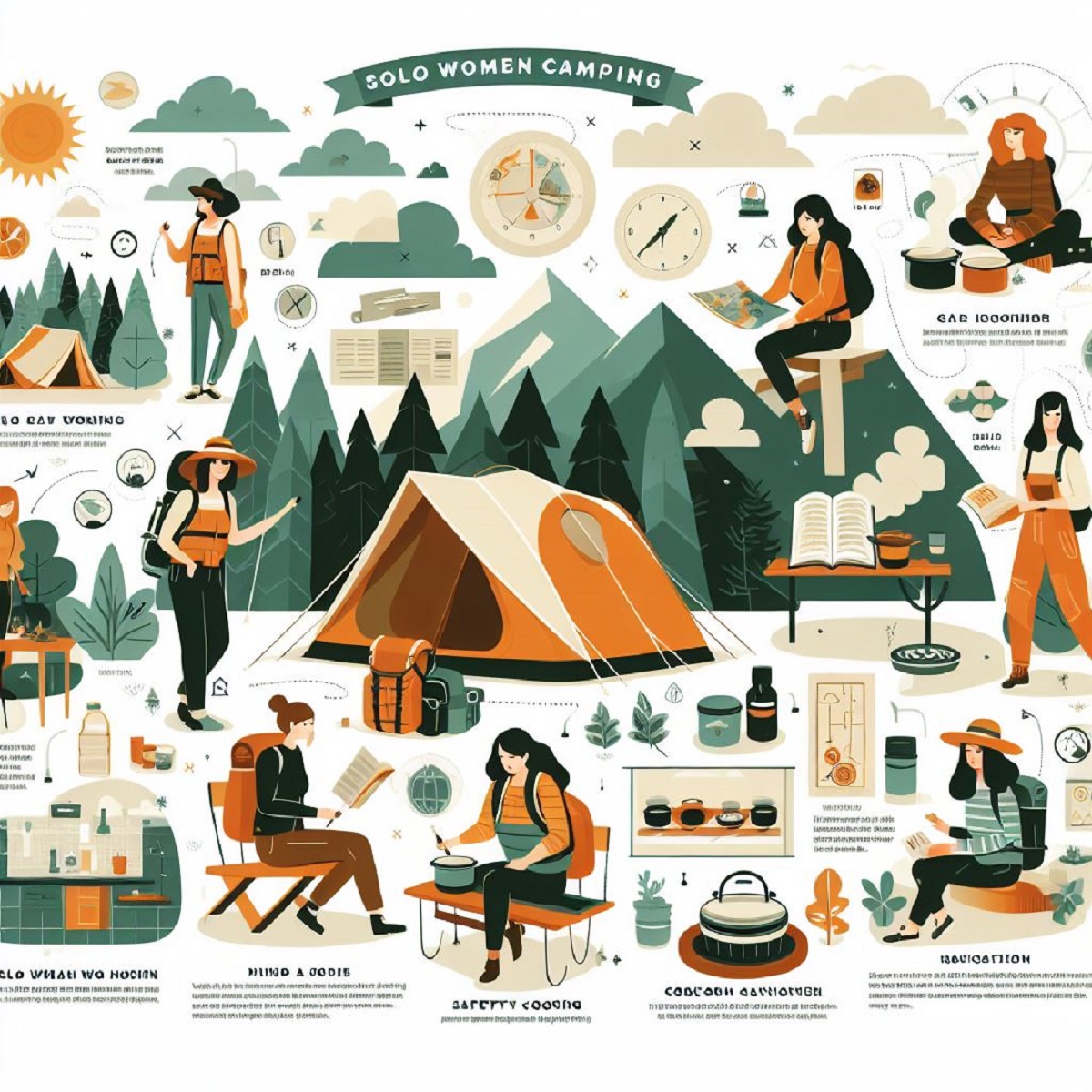Have you ever considered embarking on a solo camping adventure but hesitated due to safety concerns? It’s time to dispel the myths and explore the reality of solo camping safety. Despite the occasional sensationalized stories in the media, solo camping can be a rewarding and safe experience with the right preparation and mindset. Let’s delve into insights from experienced solo campers and address common misconceptions surrounding solo camping safety.
Key Takeaways:
- Solo camping safety is often influenced by individual perceptions and preparedness rather than inherent danger.
- Building confidence and competence through experience, education, and preparedness measures can enhance safety and enjoyment.
- Utilizing situational awareness, sharing itineraries, and being prepared for emergencies are crucial aspects of solo camping safety.
- Dogs can provide companionship, security, and additional safety benefits for solo campers.
Debunking Solo Camping Myths:
1. Perception vs. Reality:
- The perception of solo camping as inherently dangerous is often fueled by unfamiliarity and sensationalized media stories.
- While risks exist, thorough preparation and awareness can mitigate potential dangers and enhance safety.
2. Situational Awareness:
- Being alert to surroundings and trusting instincts are essential for identifying and avoiding risky situations.
- Sharing itinerary details with trusted contacts and staying informed about local conditions contribute to safety.
3. Comprehensive Preparedness:
- Overpreparation, including packing essential gear and acquiring relevant skills, fosters confidence and readiness for various scenarios.
- Consideration of self-defense options, such as bear spray or personal alarms, aligns with individual comfort levels and preferences.
Insights from Experienced Solo Campers:
1. Canine Companionship:
- Dogs serve as valuable companions for solo campers, providing security, companionship, and early warning systems.
- Selecting a breed compatible with camping needs and training can enhance safety and enjoyment.
2. Competence and Confidence:
- Building outdoor skills through education and experience fosters confidence and preparedness for solo camping adventures.
- Overcoming initial apprehension through gradual exposure and familiarization with solo camping environments can lead to increased enjoyment and comfort.
3. Personal Growth and Enjoyment:
- Solo camping offers opportunities for personal growth, solitude, and self-discovery, enriching mental health and well-being.
- Tailoring camping experiences to individual preferences and comfort levels allows for a fulfilling outdoor journey.
Real-Life Experiences:
- Pacific Crest Trail Journey: Solo camper shares insights from hiking the Pacific Crest Trail, highlighting initial apprehension and eventual enjoyment through experience and adaptation.
- Secluded Camping Preferences: Some solo campers feel safer in secluded campgrounds, emphasizing the importance of knowledge and awareness in diverse camping environments.
Conclusion:
Solo camping safety hinges on a combination of perception, preparation, and experience. By addressing common myths and embracing proactive safety measures, solo campers can embark on fulfilling outdoor adventures with confidence and enjoyment. Whether accompanied by a canine companion or venturing solo, solo camping offers unique opportunities for personal growth, connection with nature, and memorable experiences under the open sky. So, pack your gear, trust your instincts, and explore the wonders of solo camping with newfound confidence!










